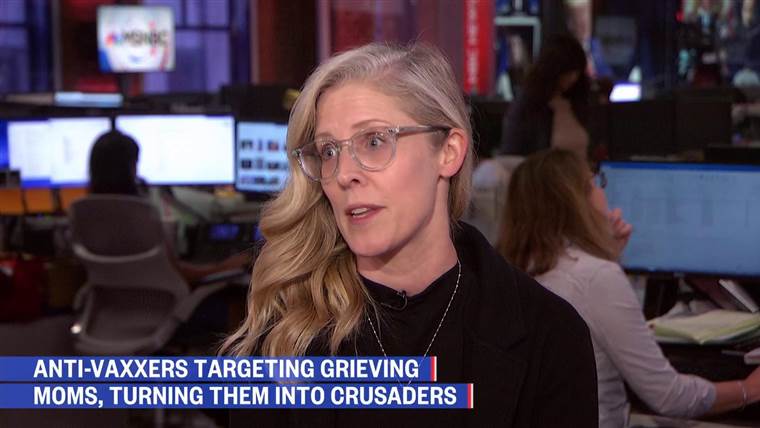Sometimes, you just have to return to the classics.
That’s especially true as Halloween approaches. While you queue up your spooky movie marathon, here are 10 iconic horror movies from the past 70 years for inspiration, and what AP writers had to say about them when they were first released.
We resurrected excerpts from these reviews, edited for clarity, from the dead — did they stand the test of time?
“Rear Window” (1954)
“Rear Window” is a wonderful trick pulled off by Alfred Hitchcock. He breaks his hero’s leg, sets him up at an apartment window where he can observe, among other things, a murder across the court. The panorama of other people’s lives is laid out before you, as seen through the eyes of a Peeping Tom.
James Stewart, Grace Kelly, Thelma Ritter and others make it good fun.
— Bob Thomas
“Halloween” (1978)
At 19, Jamie Lee Curtis is starring in a creepy little thriller film called “Halloween.”
Until now, Jamie’s main achievement has been as a regular on the “Operation Petticoat” TV series. Jamie is much prouder of “Halloween,” though it is obviously an exploitation picture aimed at the thrill market.
The idea for “Halloween” sprang from independent producer-distributor Irwin Yablans, who wanted a terror-tale involving a babysitter. John Carpenter and Debra Hill fashioned a script about a madman who kills his sister, escapes from an asylum and returns to his hometown intending to murder his sister’s friends.
— Bob Thomas
“The Silence of the Lambs” (1991)
“The Silence of the Lambs” moves from one nail-biting sequence to another. Jonathan Demme spares the audience nothing, including closeups of skinned corpses. The squeamish had best stay home and watch “The Cosby Show.”
Ted Tally adapted the Thomas Harris novel with great skill, and Demme twists the suspense almost to the breaking point. The climactic confrontation between Clarice Starling and Buffalo Bill (Ted Levine) is carried a tad too far, though it is undeniably exciting with well-edited sequences.
Such a tale as “The Silence of the Lambs” requires accomplished actors to pull it off. Jodie Foster and Anthony Hopkins are highly qualified. She provides steely intelligence, with enough vulnerability to sustain the suspense. He delivers a classic portrayal of pure, brilliant evil.
— Bob Thomas
“Scream” (1996)
In this smart, witty homage to the genre, students at a suburban California high school are being killed in the same gruesome fashion as the victims in the slasher films they know by heart.
If it sounds like the script of every other horror movie to come and go at the local movie theater, it’s not.
By turns terrifying and funny, “Scream” — written by newcomer David Williamson — is as taut as a thriller, intelligent without being self-congratulatory, and generous in its references to Wes Craven’s competitors in gore.
— Ned Kilkelly
“The Blair Witch Project” (1999)
Imaginative, intense and stunning are a few words that come to mind with “The Blair Witch Project.”
“Blair Witch” is the supposed footage found after three student filmmakers disappear in the woods of western Maryland while shooting a documentary about a legendary witch.
The filmmakers want us to believe the footage is real, the story is real, that three young people died and we are witnessing the final days of their lives. It isn’t. It’s all fiction.
But Eduardo Sanchez and Dan Myrick, who co-wrote and co-directed the film, take us to the edge of belief, squirming in our seats the whole way. It’s an ambitious and well-executed concept.
— Christy Lemire
“Saw” (2004)
The fright flick “Saw” is consistent, if nothing else.
This serial-killer tale is inanely plotted, badly written, poorly acted, coarsely directed, hideously photographed and clumsily edited, all these ingredients leading to a yawner of a surprise ending. To top it off, the music’s bad, too.
You could forgive all (well, not all, or even, fractionally, much) of the movie’s flaws if there were any chills or scares to this sordid little horror affair.
But “Saw” director James Wan and screenwriter Leigh Whannell, who developed the story together, have come up with nothing more than an exercise in unpleasantry and ugliness.
— David Germain
Germain gave “Saw” one star out of four.
“Paranormal Activity” (2009)
The no-budget ghost story “Paranormal Activity” arrives 10 years after “The Blair Witch Project,” and the two horror movies share more than a clever construct and shaky, handheld camerawork.
The entire film takes place at the couple’s cookie-cutter dwelling, its layout and furnishings indistinguishable from just about any other readymade home constructed in the past 20 years. Its ordinariness makes the eerie, nocturnal activities all the more terrifying, as does the anonymity of the actors adequately playing the leads.
The thinness of the premise is laid bare toward the end, but not enough to erase the horror of those silent, nighttime images seen through Micah’s bedroom camera. “Paranormal Activity” owns a raw, primal potency, proving again that, to the mind, suggestion has as much power as a sledgehammer to the skull.
— Glenn Whipp
Whipp gave “Paranormal Activity” three stars out of four.
“The Conjuring” (2013)
As sympathetic, methodical ghostbusters Lorraine and Ed Warren, Vera Farmiga and Patrick Wilson make the old-fashioned haunted-house horror film “The Conjuring” something more than your average fright fest.
“The Conjuring,” which boasts incredulously of being their most fearsome, previously unknown case, is built very in the ’70s-style mold of “Amityville” and, if one is kind, “The Exorcist.” The film opens with a majestic, foreboding title card that announces its aspirations to such a lineage.
But as effectively crafted as “The Conjuring” is, it’s lacking the raw, haunting power of the models it falls shy of. “The Exorcist” is a high standard, though; “The Conjuring” is an unusually sturdy piece of haunted-house genre filmmaking.
— Jake Coyle
Coyle gave “The Conjuring” two and half stars out of four.
“Get Out” (2017)
Fifty years after Sidney Poitier upended the latent racial prejudices of his white date’s liberal family in “Guess Who’s Coming to Dinner,” writer-director Jordan Peele has crafted a similar confrontation with altogether more combustible results in “Get Out.”
In Peele’s directorial debut, the former “Key and Peele” star has — as he often did on that satirical sketch series — turned inside out even supposedly progressive assumptions about race. But Peele has largely left comedy behind in a more chilling portrait of the racism that lurks beneath smiling white faces and defensive, paper-thin protestations like, “But I voted for Obama!” and “Isn’t Tiger Woods amazing?”
It’s long been a lamentable joke that in horror films — never the most inclusive of genres — the Black dude is always the first to go. In this way, “Get Out” is radical and refreshing in its perspective.
— Jake Coyle
Coyle gave “Get Out” three stars out of four.
“Hereditary” (2018)
In Ari Aster’s intensely nightmarish feature-film debut “Hereditary,” when Annie (Toni Collette), an artist and mother of two teenagers, sneaks out to a grief-support group following the death of her mother, she lies to her husband Steve (Gabriel Byrne) that she’s “going to the movies.”
A night out with “Hereditary” is many things, but you won’t confuse it for an evening of healing and therapy. It’s more like the opposite.
Aster’s film, relentlessly unsettling and pitilessly gripping, has carried with it an ominous air of danger and dread: a movie so horrifying and good that you have to see it, even if you shouldn’t want to, even if you might never sleep peacefully again.
The hype is mostly justified.
— Jake Coyle
Coyle gave “Hereditary” three stars out of four.
Read the full review here. ___
Researcher Rhonda Shafner contributed from New York.






























